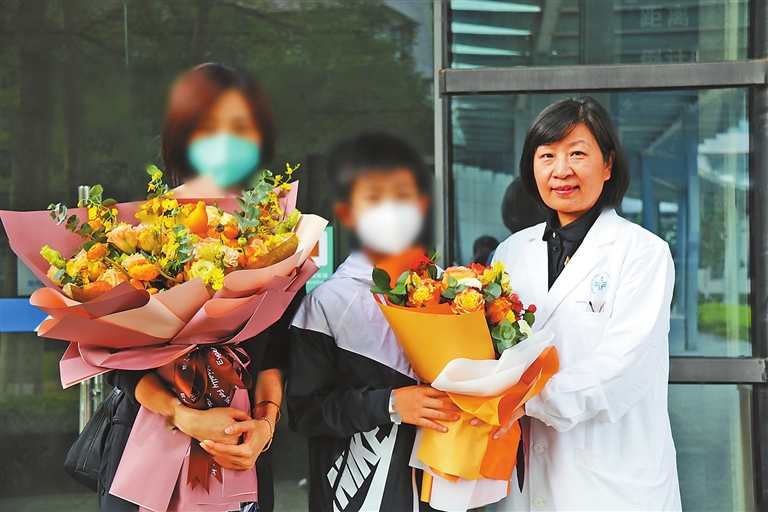
CHINA locked down Wuhan, a megacity with a population of over 10 million, Thursday in an unprecedented effort to curb the spread of a deadly novel coronavirus. From 10 a.m. Thursday, all public transportation, including city buses, subways, ferries and long-distance coaches, in Wuhan in Central China’s Hubei Province have been suspended, and outbound channels at airports and railway stations have also been closed until further notice. Passenger traffic into Wuhan by road and waterway was also suspended Thursday. Citizens should not leave the megacity without specific reasons, according to a notice issued in the wee hours of Thursday by Wuhan’s headquarters for the control and treatment of pneumonia caused by the novel coronavirus. At about 10:15 a.m. Thursday, all Metro stations in the city were closed. A Xinhua reporter went to a public transport hub and was told all buses “returned to the parking lot by 11 a.m.” All the entrances at the Wuhan Railway Station and many expressway entrances in Hubei Province have been closed. Some passengers are stranded at the stations or airports. As medical consumables such as surgical masks, protective clothing and disinfectant are running short, the Red Cross Society of China’s Wuhan branch opened 24-hour hotlines to receive donated emergency stocks. Wearing a proper mask is an effective way to avoid infection, according to medical experts. The authorities in Wuhan, therefore, have demanded that all residents wear masks in public places. “Staff of State organs, enterprises and institutions shall wear masks at work, and operators of public venues should set up eye-catching signs to request residents to put on masks before entering,” said a notice issued by the Wuhan Municipal Government. “Those who disregard the warning will be punished according to relevant laws and regulations,” it added. Many local residents are busy purchasing food and daily necessities for the upcoming Spring Festival. According to the provincial commerce department, the province will strengthen the monitoring of grain, oil, meat, eggs and vegetables, increase stocks during the Spring Festival holiday to ensure stable supply, and intensify environmental sanitation control. The Wuhan municipal department of culture and tourism Wednesday suspended group tours through all local agencies from Wednesday to Feb. 8 and ordered agencies to cancel all group tours planned after Jan. 30. For trips before the date, travel agencies are required to grant refunds to all customers. The measures will be taken in a bid to “effectively cut off the virus spread, resolutely curb the outbreak and guarantee people’s health and safety,” said the headquarters’ notice. Affected by the outbreak, all seven Chinese movies set to be aired during the Spring Festival holiday have been canceled or postponed. The total Chinese box office during the holiday exceeded 5 billion yuan (US$724.6 million) during last year’s Lunar New Year holiday. As of 8 p.m. Wednesday, a total of 444 cases of novel coronavirus-related pneumonia and 17 deaths had been reported in Hubei Province, according to local authorities. Among the confirmed cases, 399 patients are receiving treatment in hospitals, with 71 in severe condition and 24 in critical condition, said Yang Yunyan, vice governor of the province, at a local press conference. Macao and Hong Kong confirmed two cases, respectively, yesterday. Nationwide, a total of 17 people had died and 571 cases were confirmed in 25 provincial-level regions in the country by the end of Wednesday. The deaths, all in Hubei, were aged between 48 and 89, according to the commission. It added that most of the patients who died had underlying health issues such as cirrhosis, diabetes, high blood pressure and coronary heart disease. The WHO on Wednesday night local time extended to Thursday its emergency talks on whether the novel coronavirus outbreak in China constitutes a Public Health Emergency of International Concern. Lauding China’s immediate detecting and sharing of the sequencing of the virus, WHO Director-General Tedros Adhanom Ghebreyeus believed that those actions will “minimize the chances of this outbreak spreading internationally.” China has issued a temporary reimbursement policy to make sure patients with pneumonia caused by the novel coronavirus will receive timely and thorough treatment. According to the National Healthcare Security Administration, expenses from medicines and medical services needed for treating the pneumonia will be completely covered by medical insurance funds. Medical insurance departments will pay for expenses incurred in the treatment of the disease in advance to lessen financial pressures on hospitals, according to the policies. A study published Wednesday in the Journal of Medical Virology showed that snake is the most probable wildlife animal reservoir for the novel coronavirus. Chinese authorities have launched a series of preventive and control measures to curb the spreading of the new pneumonia. Scientific research institutions quickly developed the reagent test kits, which sped up disease confirmation. The NHC has issued a prevention and control plan, which has been continuously updated in accordance with the development of the pneumonia situation. A leading workgroup has been established by the National Administration of Traditional Chinese Medicine to organize hospitals of traditional Chinese medicine at all levels and of all kinds to coordinate in the control and prevention of pneumonia. It also encouraged experts of traditional Chinese medicine to participate in treatment, especially for severely-affected patients, as well as research on the disease. Wild animals that are likely to carry the novel coronavirus are banned from transshipment and sale, according to a plan jointly proposed by the State Administration for Market Regulation and other departments. In order to prevent medical staff from being infected, the NHC on Thursday issued a technical guide that requires medical institutions to ensure sufficient supplies including isolation gowns and masks to protect medical staff, make reasonable work schedules for them, provide them with nutritious meals and monitor their health. (Xinhua) | 
